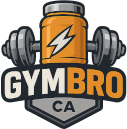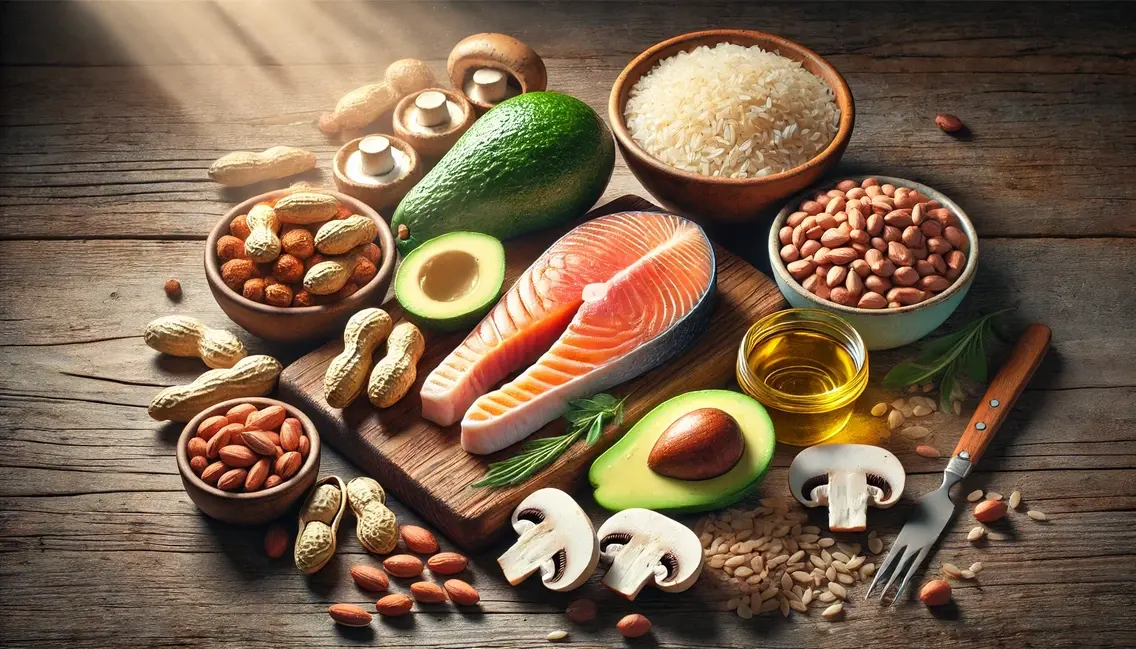Vitamin B3: The Essential Booster for Your Body and Mind
Did you know that a single vitamin could be your secret weapon for boosting energy, enhancing cardiovascular health, and even maintaining glowing skin? Enter Vitamin B3—also known as niacin, a powerhouse in the vitamin family that is often overlooked but deserves a place in your daily wellness regimen.
By supporting energy metabolism and the function of the nervous system, niacin provides multifaceted health benefits. It’s been recognized for its ability to reduce cholesterol levels and the risk of heart disease—claims that are strongly supported by research from the National Institutes of Health (NIH). While the promise of niacin is vast, navigating its safe and effective use is crucial. Too much niacin can lead to side effects like flushing and, at high intakes, serious liver toxicity. The form of niacin you choose matters too, with nicotinamide (niacinamide) being a safer option for many, offering similar benefits with fewer risks.
Intrigued by how this vitamin can transform your health and well-being? Let’s delve deeper into the science behind this essential nutrient and discover how to harness its full potential responsibly.
Health Benefits of Vitamin B3 (Niacin)
Vitamin B3, commonly known as niacin, is indispensable for maintaining overall health and facilitating multiple body functions. From enhancing energy production to promoting cardiovascular health, niacin is a vital nutrient for your well-being.
Key Health Benefits
- Energy Metabolism Support
Niacin is crucial in converting carbohydrates, fats, and proteins into energy. It functions as a coenzyme in the Krebs cycle, vital for ATP production, thus boosting energy levels and reducing fatigue.
- Cardiovascular Health Enhancement
Studies show that niacin can effectively lower bad LDL cholesterol and increase good HDL cholesterol levels, thereby reducing the risk of atherosclerosis and heart diseases. It is often used in clinical settings to manage cholesterol levels.
- Nervous System Functionality
Essential for nervous system health, Vitamin B3 aids in maintaining nerve health and supports brain function, which is vital for cognitive health.
- Skin Health Improvement
By supporting skin cell health, niacin improves skin conditions. Its form, nicotinamide, is frequently used in dermatological treatments for its anti-inflammatory benefits.
Incorporating Vitamin B3 for Optimal Health
Given its wide-ranging benefits, incorporating Vitamin B3 is key to maintaining essential body functions and promoting overall health. A convenient way to ensure you meet your daily niacin requirement is to integrate a reliable supplement into your routine. For those seeking a tasty and effective option, consider trying Energize your day with Jamieson's Chewable B Complex in delicious Berry Bliss flavor!. This supplement provides the necessary niacin intake while delighting your taste buds, making it easier to stay energized and healthy throughout the day.
Explore natural food options rich in Vitamin B3 to ensure you meet your dietary needs and benefit fully from this powerful nutrient.
Dietary Sources of Vitamin B3 (Niacin)
Understand the best natural sources of Vitamin B3 (Niacin), crucial for energy metabolism, skin vitality, and nervous system health. While foods like meats and whole grains can contribute to niacin intake, many find it challenging to consistently meet daily requirements through diet alone.
Natural Sources of Vitamin B3
- Chicken Breast
Rich in niacin, a 3-ounce cooked portion offers approximately 10.3 mg—roughly half the daily recommended intake for adults. However, it can be difficult to incorporate chicken consistently in varied diets.
- Tuna
Canned in water, a 3-ounce serving of tuna typically provides around 11.3 mg of niacin. Yet, due to potential mercury content and taste preferences, regular consumption may be challenging.
- Turkey
The breast portion of turkey contains about 8.3 mg of niacin per 3-ounce serving. Despite its benefits, turkey may not be a daily staple in many households.
- Peanuts
About one cup of raw peanuts delivers roughly 21.9 mg of niacin, but allergies and calorie intake can impede frequent use as a niacin source.
- Mushrooms
Varieties like portobello and shiitake provide around 4 mg per cooked cup. Include them to diversify your diet, though taste and availability might be limiting factors.
Overcoming Dietary Challenges
Despite these sources, many Canadians struggle to consistently meet their niacin needs through food. Busy lifestyles and dietary restrictions can hamper one's ability to consume adequate amounts. To bridge this nutritional gap, incorporating a reliable supplement can help. Energize your day with Jamieson's Chewable B Complex in delicious Berry Bliss flavor to conveniently bolster your niacin intake. This addition ensures you are supporting your body's requirements without the daily challenge of dietary precision.
Daily Intake for Vitamin B3 (Niacin)
Vitamin B3, commonly known as niacin, plays a fundamental role in supporting various bodily functions, including energy metabolism, nervous system health, skin maintenance, and cholesterol regulation. Adequate intake is essential in preventing pellagra, which manifests as dermatitis, diarrhea, and dementia.
Recommended Daily Intake
- Infants (0-6 months): 2 mg per day
- Infants (7-12 months): 4 mg per day
- Children (1-3 years): 6 mg per day
- Children (4-8 years): 8 mg per day
- Children (9-13 years): 12 mg per day
- Teenagers (14-18 years) & Adults (male): 16 mg per day
- Teenagers (14-18 years) & Adults (female): 14 mg per day
- Pregnant teens and women: 18 mg per day
- Breastfeeding teens and women: 17 mg per day
These guidelines ensure that different age groups receive the optimal amount of niacin for good health.
Meeting Your Daily Niacin Needs
A consistent intake of niacin-rich foods like poultry, fish, whole grains, and legumes is imperative for meeting your daily nutritional requirements. While these foods can help maintain proper levels, sometimes supplementation is necessary to ensure you're meeting your body's demands. It’s crucial to monitor niacin intake, especially when considering supplements, as excessive doses can lead to side effects such as flushing and liver issues.
For those looking to conveniently support their daily niacin needs, consider Energizing your day with Jamieson's Chewable B Complex in delicious Berry Bliss flavor, which provides a tasty and effective way to achieve nutritional balance. Remember, sustained and balanced niacin intake supports overall health, preventing deficiencies and promoting well-being across all age groups.
Deficiency of Vitamin B3 (Niacin)
Vitamin B3, commonly referred to as niacin, is crucial for supporting energy metabolism, a healthy nervous system, and skin health. A deficiency in niacin can severely impact these vital processes and lead to significant health concerns.
Deficiency Symptoms and Consequences
- Pellagra
A pronounced deficiency in vitamin B3 can result in pellagra, marked by the "three D's": dermatitis, diarrhea, and dementia. Dermatitis often appears as a rash on sun-exposed parts of the body, diarrhea affects how your body absorbs nutrients, and dementia can cause confusion and memory issues. Without intervention, pellagra may eventually become life-threatening.
- Digestive Issues
Niacin plays a key role in digestive health. A deficiency might lead to gastrointestinal problems, including a reduced appetite, abdominal pain, and other nutrient deficiencies stemming from impaired nutrient absorption.
- Neurological Problems
Niacin deficiency can cause various neurological symptoms, such as irritability, concentration difficulties, depression, and fatigue, largely because of its involvement in producing neurotransmitters.
Preventing Vitamin B3 Deficiency
Ward off niacin deficiency by incorporating niacin-rich foods into your diet, such as meats, fish, whole grains, and legumes. Understanding and ensuring availability to these food sources is essential for maintaining sufficient niacin levels. Curious about common misconceptions and practical concerns about Vitamin B3 deficiency?
Maintaining adequate niacin intake may seem straightforward, but there are often uncertainties about whether you're getting enough. To effectively bridge this potential nutritional gap and avoid the serious risks associated with deficiency, many health enthusiasts turn to supplements. Energize your day with Jamieson's Chewable B Complex in delicious Berry Bliss flavor!
Up next, we'll delve into frequently asked questions about Vitamin B3 deficiency and how to manage it effectively.
Conclusion
As you consider the roles Vitamin B3 plays in your body, from energizing your daily activities to fortifying your cardiovascular and nervous systems, it becomes clear that niacin is more than just another supplement on the shelf—it's an essential part of a thriving health regime. With numerous Canadians often falling short of their niacin requirements, the challenge lies not just in understanding its importance but in integrating it seamlessly into everyday life.
Take a moment to reflect on your current diet and lifestyle. Are you consistently meeting your body's vitamin needs through diet alone, or could a supplement like Jamieson's Chewable B Complex be a game-changer for you? Remember, maintaining optimum health is a journey, not a destination. Whether you decide to tweak your diet or explore reputable supplements, every step you take is a move toward a healthier, more vibrant you.
As our community at GymBro.ca knows, sharing experiences can be as enriching as gaining new knowledge. We invite you to join the conversation: What challenges do you face with vitamin intake? Have you found unique ways to include niacin-rich foods in your meals? Share your insights below, and let's fuel a healthier future together.
Empowered with this understanding, make a smart decision today that your future self will thank you for. After all, your health journey is built one informed choice at a time. Stay informed, stay engaged, and continue striving for that optimal balance that keeps both body and mind in peak condition.

